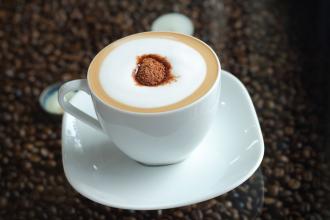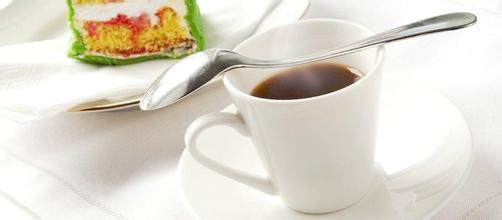How to describe the taste and flavor of Yejia coffee beans
How to describe the taste and flavor of Yejia coffee beans
Only when the coffee beans are roasted at a temperature between 180 and 200, will the internal caramelization reaction begin. It is the beginning of an explosion, and at the end of an explosion, not only do you have to ask whether your Yega Snow Coffee has reached an explosion? Are the sweetness and acidity round and not exciting? Is there no smell of grass? Is there no astringency? Does it take a long time to return to Gan? Is the alcohol thickness great? If the answer to the above question is yes, then I am honored to tell you that the integrity of the flavor release of your Yega Schiffe is relatively good. So I can't help but ask, what kind of flavor does Yejasuffe want to highlight? In fact, Yejaschuffe is not as sour as rumored, as sour as lemon, it has its own unique aroma, similar to rose, jasmine, nectar, acidity is similar to citrus, orange pulp is as round, Huigan is mainly chocolate or cocoa, under the correct baking degree, Yejashaffe is as bright as plum and has a long aftertaste.
The reason is simple: the sweetness of coffee comes from caramelization (browning of carbohydrates) and Mena reaction (carbohydrates combine with amino acids). Most bakers would think that deep roasting increases bitterness and destroys sour taste. Light roasting can experience sour taste more clearly. In fact, such an idea is really wrong. Shallow roasting can easily lead to uneven internal baking of coffee beans, that is to say, in the shallow roasting stage, the internal dehydration of coffee beans is not clean enough, and the beans are extremely hard. The acidity of such coffee is often not round enough, with a kind of irritation in the acid, not high sweetness, not strong mellow, and the aroma is often mixed with a kind of grass flavor.
In fact, what we want to say is that it is not just Yega Snow Coffee, but coffee with high alcohol thickness and bitterness, such as Mantenin, is sour even if it is lightly roasted, so can we describe this sour taste as citrus acid? To sum up, all the shallow roasting of coffee is sour, which is the wrong taste released under the wrong roasting degree.

Important Notice :
前街咖啡 FrontStreet Coffee has moved to new addredd:
FrontStreet Coffee Address: 315,Donghua East Road,GuangZhou
Tel:020 38364473
- Prev

Characteristic acidity classification taste story of Latin American coffee beans
The acidity classification and taste of Latin American coffee beans are the origin of coffee cultivation in Latin America. Because France was under the Bourbon dynasty at that time, Arabica coffee grown in Latin America had another name that is now famous in the coffee industry. Bourbon is now an important branch of coffee in Arabica. The overall style of coffee in Latin America
- Next

Description of taste and flavor of Ugandan coffee beans introduction to grinding scale of variety treatment method in producing areas
Uganda coffee beans taste and flavor description the processing method of Uganda coffee varieties grinding scale introduces that Ugandan coffee beans have a unique flavor of delicate flavor, which is very suitable for making Italian and other flavors of coffee. More importantly, Ugandan coffee beans are strictly screened in accordance with the standards of the international market to ensure their high quality and pollution-free characteristics. Africa is the two main varieties of coffee, Arabica and Ro.
Related
- Detailed explanation of Jadeite planting Land in Panamanian Jadeite Manor introduction to the grading system of Jadeite competitive bidding, Red bid, Green bid and Rose Summer
- Story of Coffee planting in Brenka region of Costa Rica Stonehenge Manor anaerobic heavy honey treatment of flavor mouth
- What's on the barrel of Blue Mountain Coffee beans?
- Can American coffee also pull flowers? How to use hot American style to pull out a good-looking pattern?
- Can you make a cold extract with coffee beans? What is the right proportion for cold-extracted coffee formula?
- Indonesian PWN Gold Mandrine Coffee Origin Features Flavor How to Chong? Mandolin coffee is American.
- A brief introduction to the flavor characteristics of Brazilian yellow bourbon coffee beans
- What is the effect of different water quality on the flavor of cold-extracted coffee? What kind of water is best for brewing coffee?
- Why do you think of Rose Summer whenever you mention Panamanian coffee?
- Introduction to the characteristics of authentic blue mountain coffee bean producing areas? What is the CIB Coffee Authority in Jamaica?

